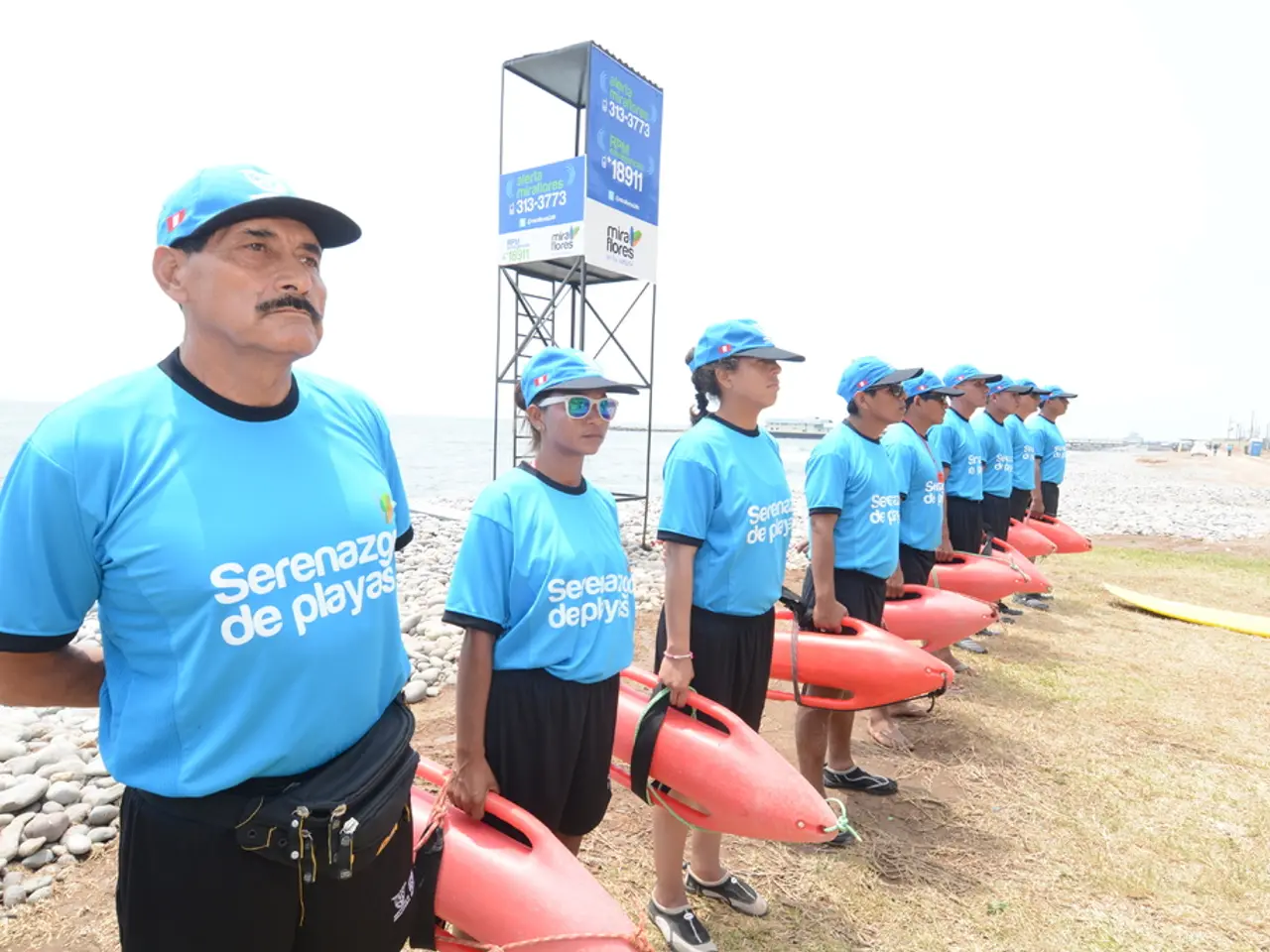The sustainability of your beach vacations: An examination.
The world of coastal tourism is evolving, and with it comes the need for travellers to make informed choices that prioritise sustainability and minimise environmental impact. Here are some key points to consider when planning your next seaside holiday.
Climate change poses a significant threat to beach tourism, challenging the industry's resilience. As temperatures rise and weather patterns become more unpredictable, it's crucial to support businesses that are adapting to these changes and working towards a greener future.
Jet skis, while popular, are a source of concern for marine life. Their noise and emissions disturb wildlife, and they can cause significant harm to invertebrates, corals, and fish. Slowing down while using jet skis can significantly reduce this harm. In some hotspots, around 75% of annual waste is generated during the summer season, making responsible boating practices more important than ever.
Responsible boat anchoring involves attaching the vessel to a buoy instead of always anchoring in the sand to prevent damaging the seabed. Choosing certified operators for snorkeling and diving that work with marine biologists and offer tours to small groups can help reduce environmental pressure. Using reef-safe sunscreen is recommended for snorkeling and diving to prevent harm to marine ecosystems.
Touching animals or plants during wildlife-watching tours can spread diseases and disrupt ecosystems. Keeping a distance from animals during these tours is advisable to prevent disturbance. A responsible wildlife-watching tour company should be clear about its requirements and adhere to international standards that undergo regular verification.
Sustainability and adaptability to climate change are now crucial for many seaside travel companies. Some countries, such as Greece and Italy, are limiting or banning the use of motorized watercraft in coastal areas to protect wildlife and coastal communities. Choosing eco-friendly sea holidays involves considering factors such as wildlife-watching tour practices, snorkeling and diving operators, and the use of motorized watercraft.
Air travel, accommodation, and plastic waste are the main ecological concerns associated with coastal tourism. The European Commission states that 53% of green claims in the EU are vague or misleading. To distinguish genuine green (sustainable) tourism from greenwashing in coastal travel, travellers should look for clear, transparent evidence that tourism practices truly minimise environmental impact, support local communities socioeconomically, and follow recognised standards or certifications from independent, credible organisations.
By verifying these aspects, travellers can make credible sustainable coastal travel choices and avoid falling for greenwashing designed to attract eco-conscious customers without substantive impact. The Mediterranean, one of the world's most popular tourist destinations, attracting one third of global tourists, is no exception.
In 2023, the EU recorded 1.1 billion tourist nights, with Italy and Spain leading the way. Yet, despite the growing number of tourists, more than 85% of Europe's bathing waters were rated "excellent" according to the European Union's 2024 bathing water assessment. Summer 2025 is predicted to be one of the hottest on record in Europe, highlighting the need for sustainable practices to ensure the continued enjoyment of our coastal areas for generations to come.
References:
[1] European Commission. (2020). Greenwashing in the EU: A guide for consumers. [2] European Commission. (2021). EU Action Plan on Sustainable Tourism. [3] United Nations Environment Programme. (2017). The Green Economy Report 2017. [4] World Tourism Organization. (2019). Towards a Greener and More Resilient Tourism.
Scientists are closely monitoring climate-change impacts on beach tourism, emphasizing the necessity for travelers to invest in environmental-science and recognize the need for sustainable, eco-friendly sea holidays. When considering a seaside vacation, prioritizing responsible wildlife-watching tour practices, snorkeling and diving operators, and reduced reliance on motorized watercraft can help minimize one's impact on coastal environments. Making informed, credible choices based on clear, transparent sustainability evidence will ensure a more sustainable coastal travel lifestyle, ultimately securing the enjoyment of our coastal areas for future generations.






